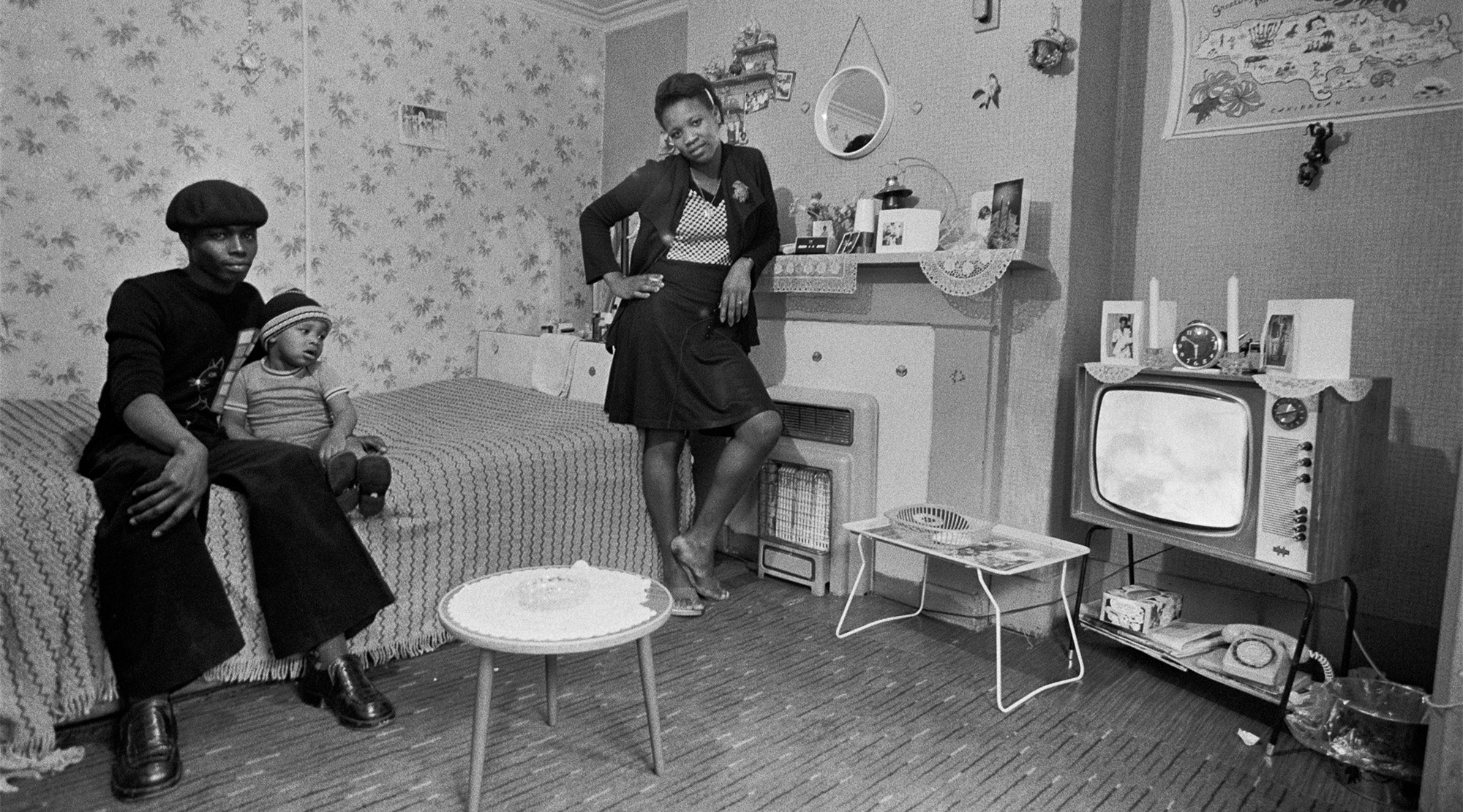
Autograph is an inclusive space where the myriad stories of marginalised people are valued and cared for, presented, published, discussed and shared.
Our unique collection of photography addresses gaps in the visual representation of Britain’s cultural history and its diverse communities.
For our new project, Seeing Differently: Learning Together, we shared works from Autograph's collection with six London schools to create a new digital learning resource. The resource uses photography to reflect on the acts of ‘seeing’ and ‘being seen’, supporting students to recognise their own agency and learn about the stories that are often left out of visual histories.
Below we've shared a selection of the images from the project and you can access the free learning resource here.

This self-portrait by Yinka Shonibare playfully questions the notion of ‘Englishness', making reference to a time of great social change in Britain and its global expansion during the 18th and 19th centuries.
Courtesy the artist and Autograph, London.
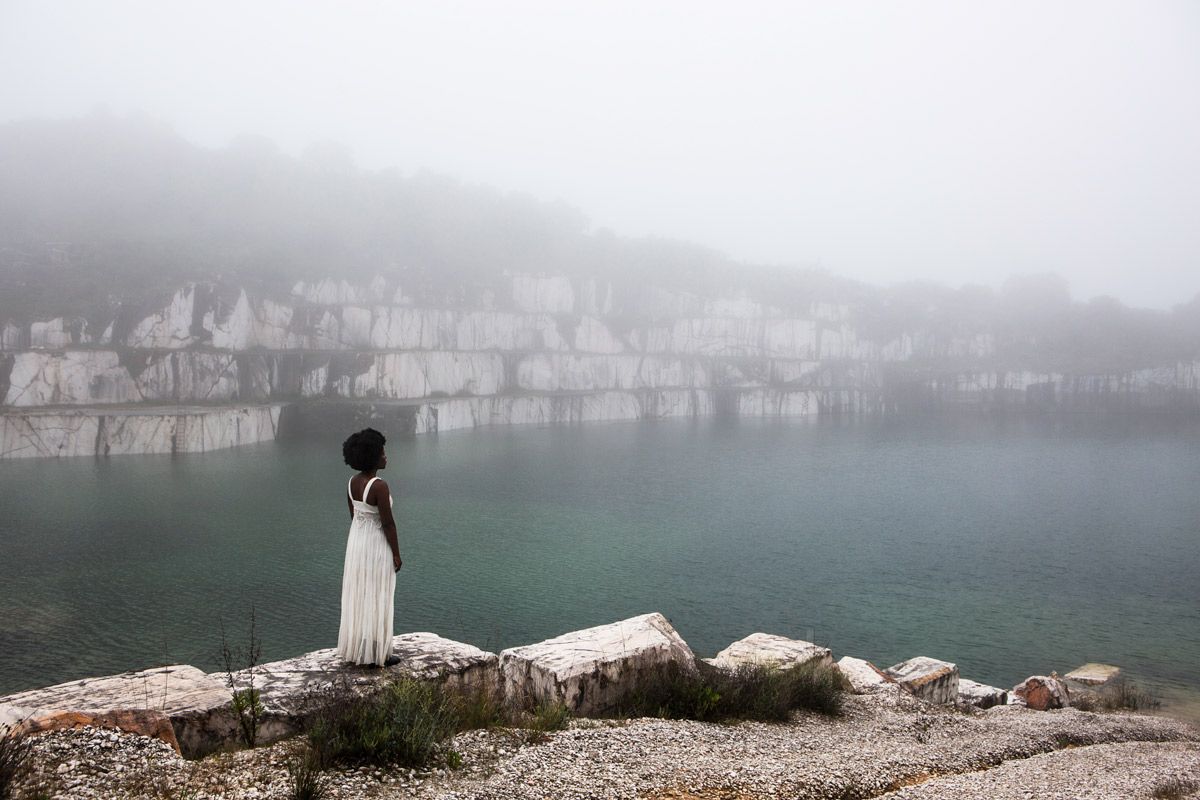
This work by Mónica de Miranda is from a series which fuses fact and fiction to explore black presences in Portugal's history and considers the complex experiences of Afrodiasporic lives and Europe’s colonial past.
© and courtesy the artist. Commissioned by Autograph for Amplify – Stranger in the Village: Afro European Matters. Supported by Art Fund.
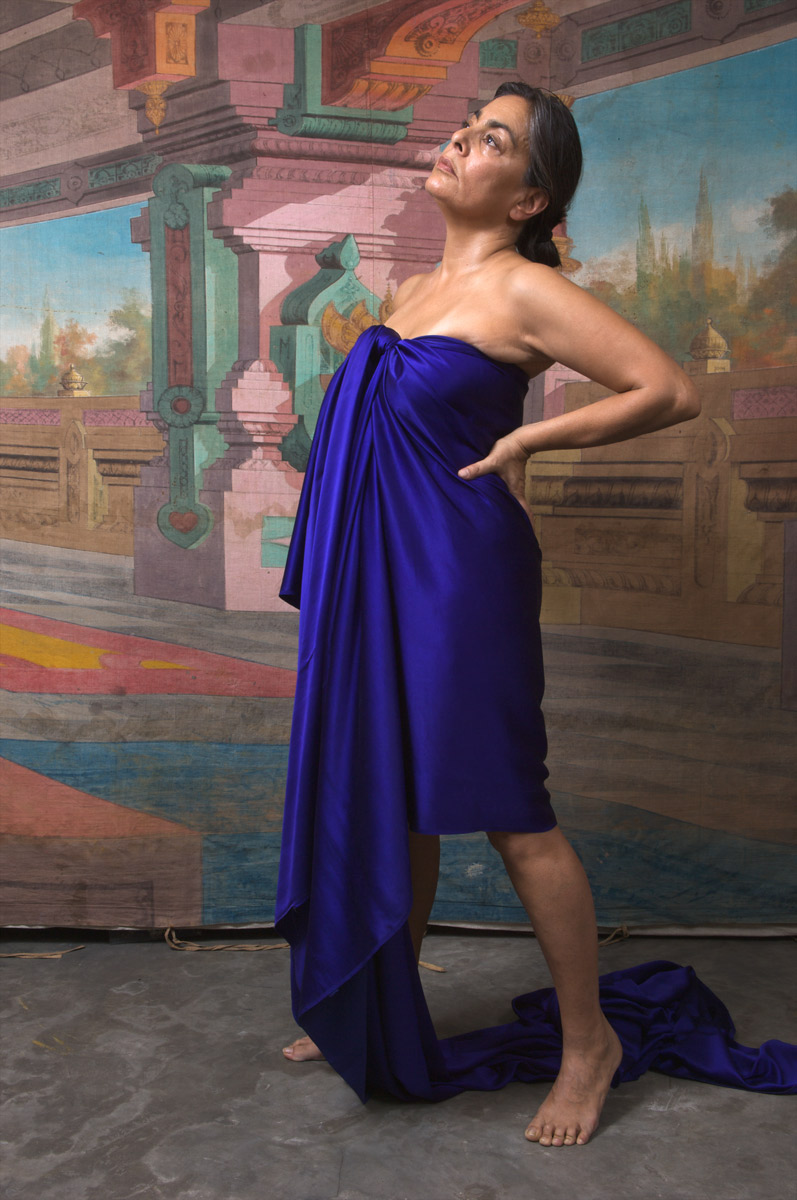
As part of our mission to explore issues of human rights, Autograph commissioned the artist Sunil Gupta to create this series of photographs which reference a law in the Indian Penal Code which was instituted by the British in 1861. The law criminalised homosexuality and led to the arbitrary arrest and exploitation of LGBTQ+ Indians. It was not overturned until 2018, following decades of grassroots activism.
The series also references the historical paintings of the Pre-Raphaelites - a collective of English artists founded in 1848 - through the use of vivid colours and the strong physical presences of the models.
Courtesy the artist and Hales Gallery, Stephen Bulger Gallery and Vadehra Art Gallery. © Sunil Gupta. All Rights Reserved, DACS 2021.

Syd Shelton is a photographer who is best known for documenting the Rock Against Racism movement between 1976 – 1981. The movement sought to confront racist ideology in the streets, parks and town halls of Britain through music, under the slogan 'love music, hate racism'.
© and courtesy the artist
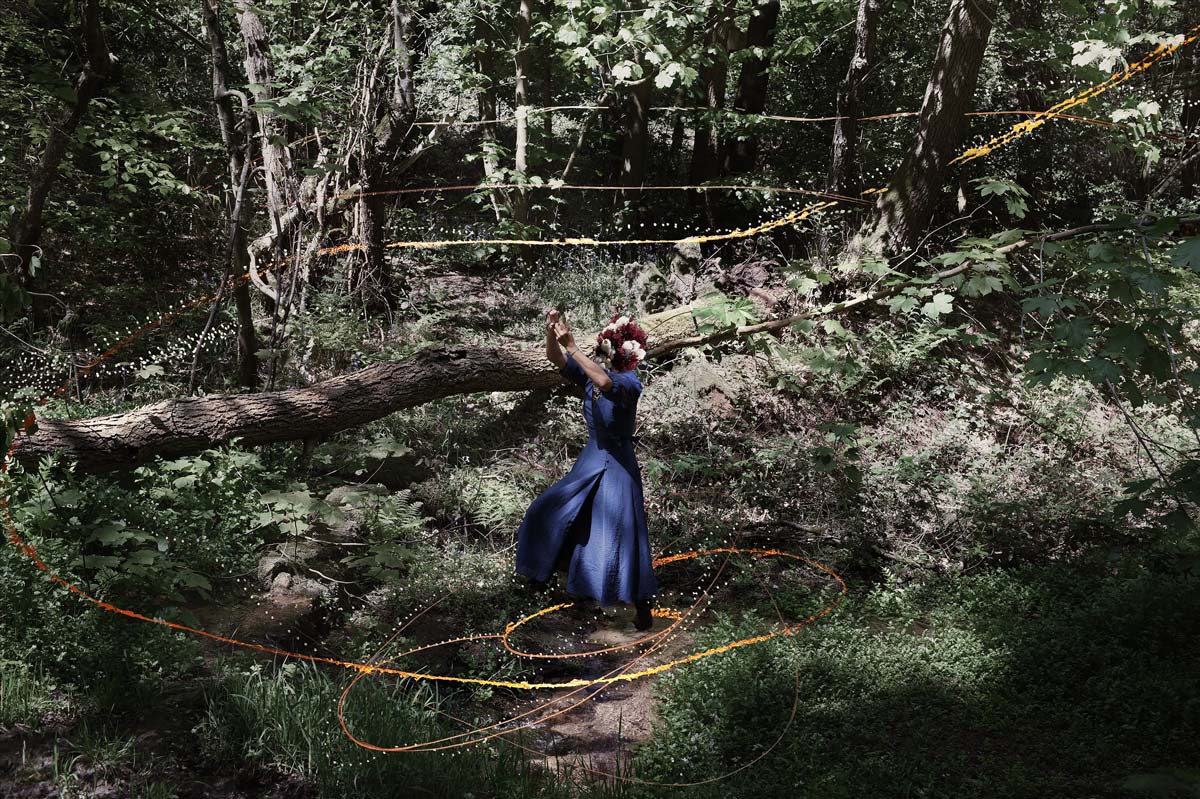
Mónica Alcázar-Duarte is an artist who uses new technologies to highlight issues of racial equality and ecological justice. Exploring ideas around climate, indigenous knowledge and western botany systems, her series Digital Clouds Don’t Carry Rain is set amongst the dying trees of Derbyshire – the home of the industrial revolution.
If you'd like to see more, an exhibition of Mónica Alcázar-Duarte's work is on display at Autograph until 1 June 2024.
© and courtesy the artist.
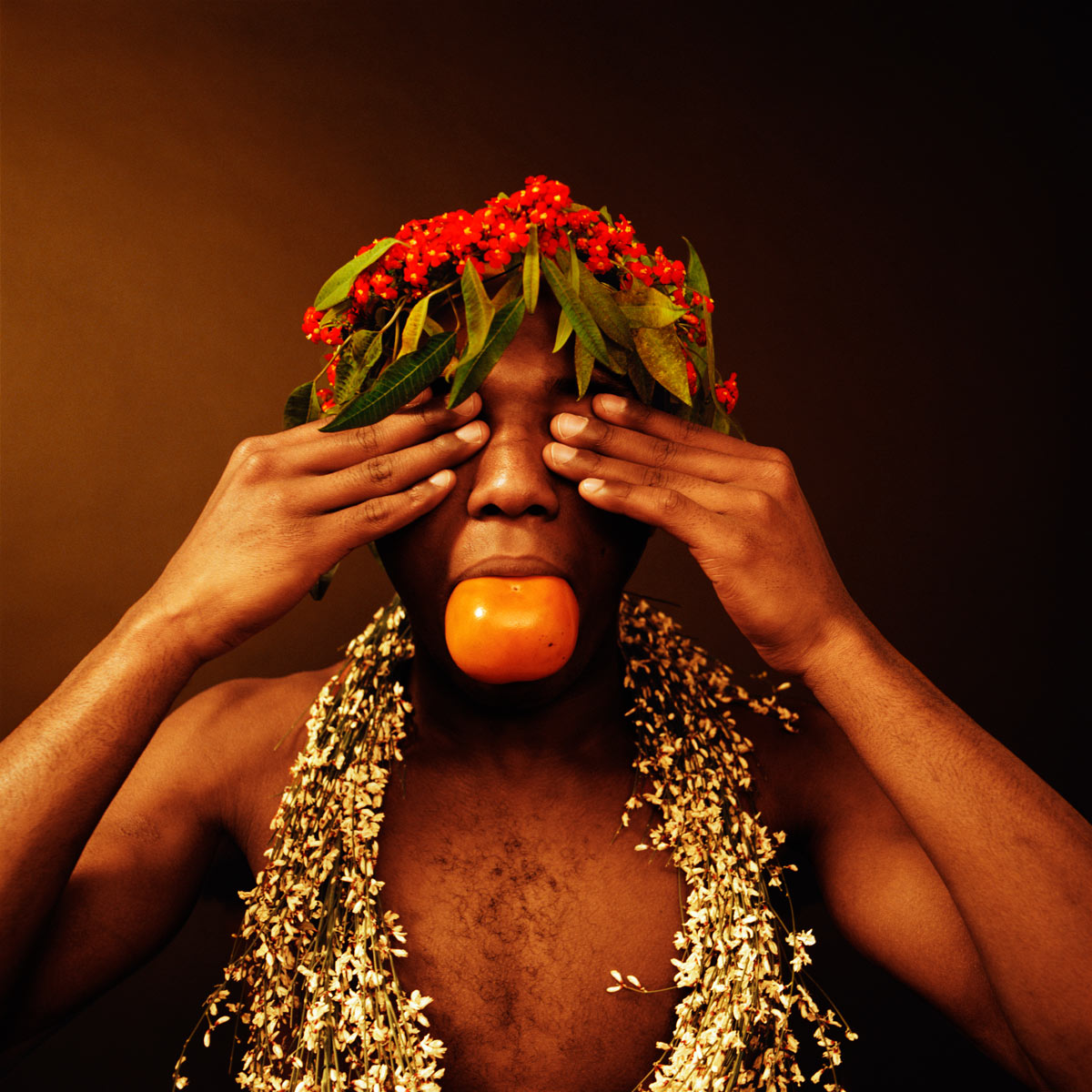
Rotimi Fani-Kayode's work places an important emphasis on the cultural politics of difference, to explore issues of race, sexuality, visibility and self-expression.
© the artist and courtesy of Autograph, London.
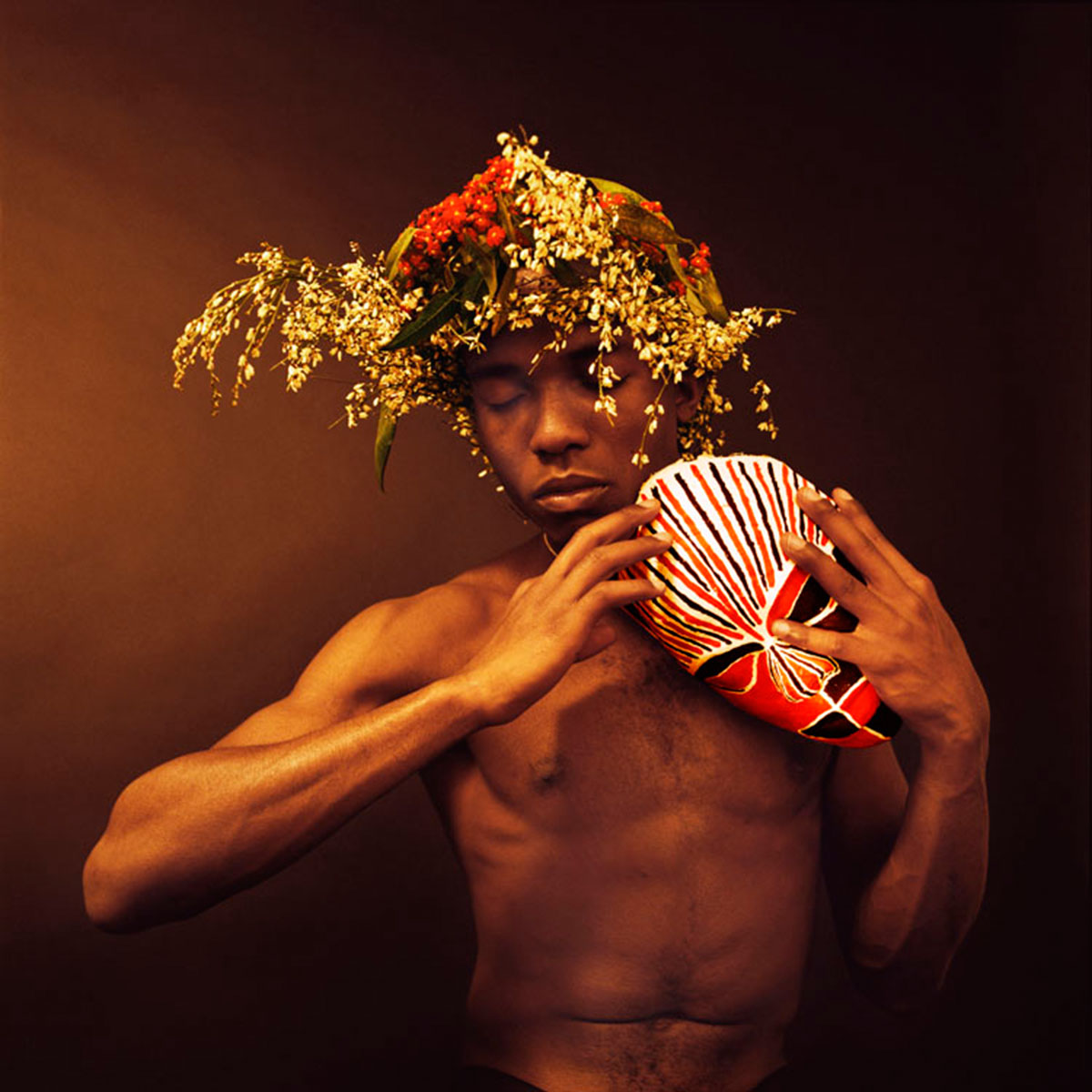
A prominent figure in the Black British art scene, Fani-Kayode was one of the first chairs and a founding signatory of Autograph.
© the artist and courtesy of Autograph, London.
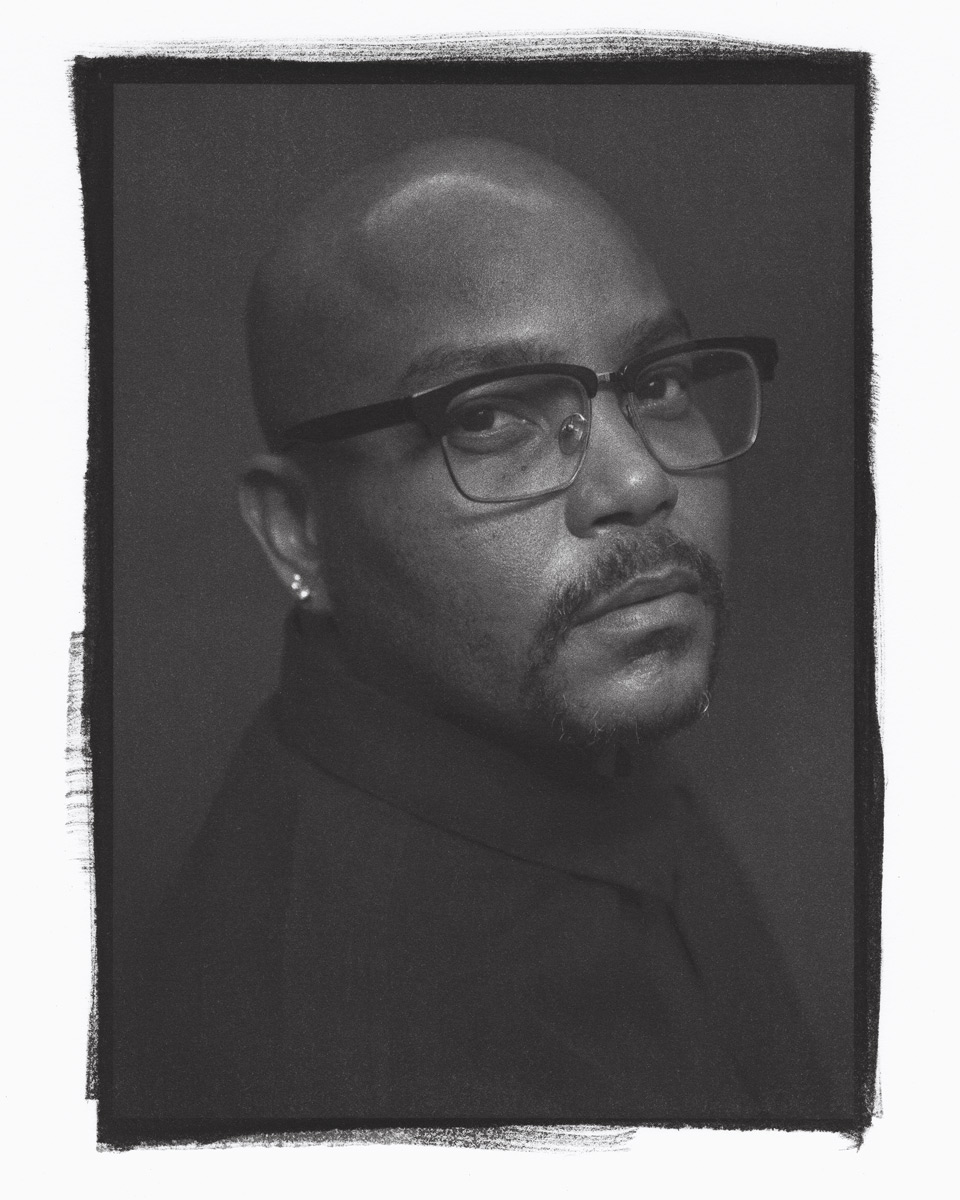
Ajamu is a photographic artist who is best known for his imagery that challenges dominant ideas around black masculinity, gender, sexuality, and representations of black LGBTQ+ people in the United Kingdom. This photograph is part of a series of portraits celebrating black trans men from all walks of life on their own terms.
Commissioned by Autograph, London and courtesy the artist.

In this series the artist worked with customers of high street internet phone shops in Manchester, photographing them as they called abroad: their bodies in one space and their minds elsewhere.
Commissioned by Autograph. Courtesy the artist and Autograph, London.
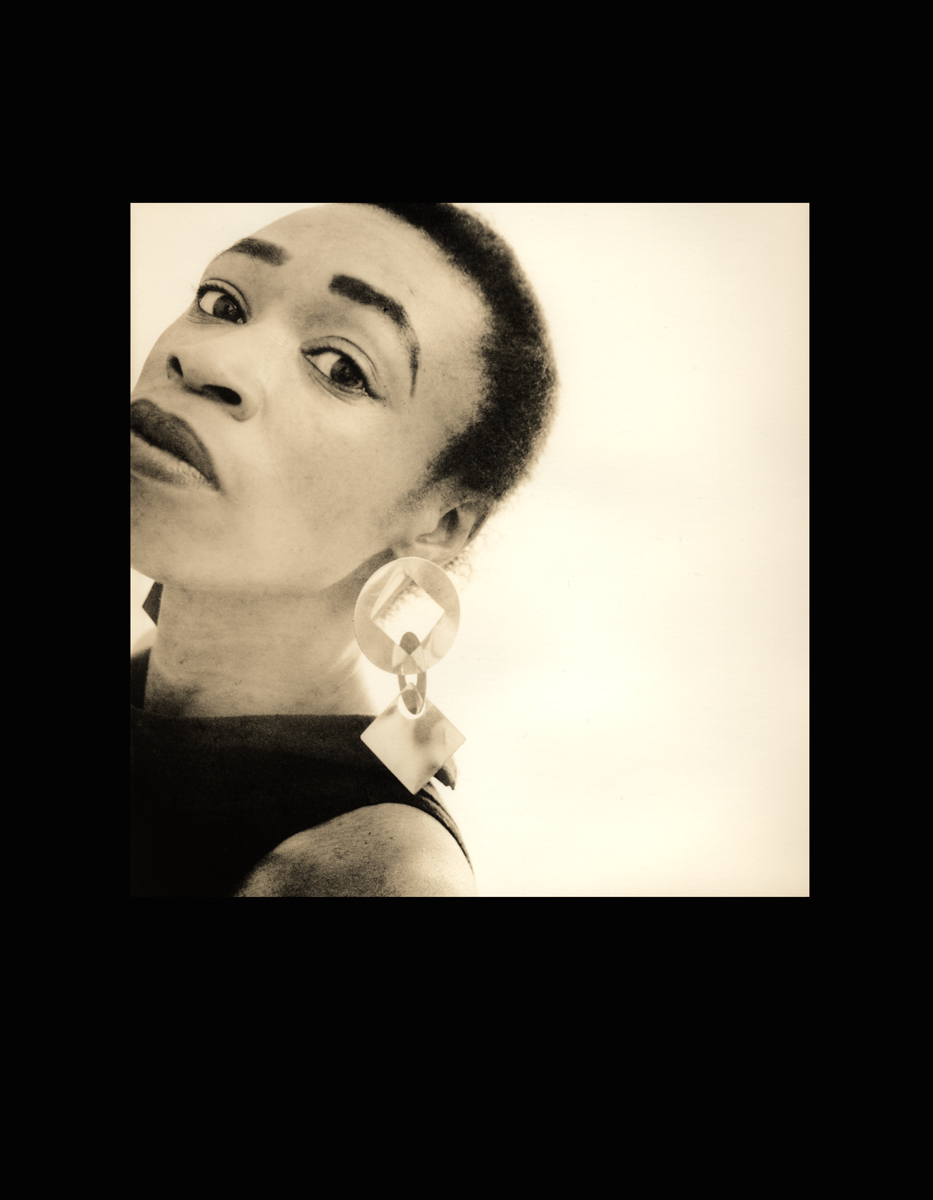
This image is from a series of nine self-portraits, in which the artist Joy Gregory depicts fragments of her upper body, face and hands, playfully moving in and out of the frame. Through close-up confrontation with the photographic lens Gregory explores issues of representation, blackness, femininity and beauty.
Commissioned by Autograph. Courtesy the artist and Autograph, London.
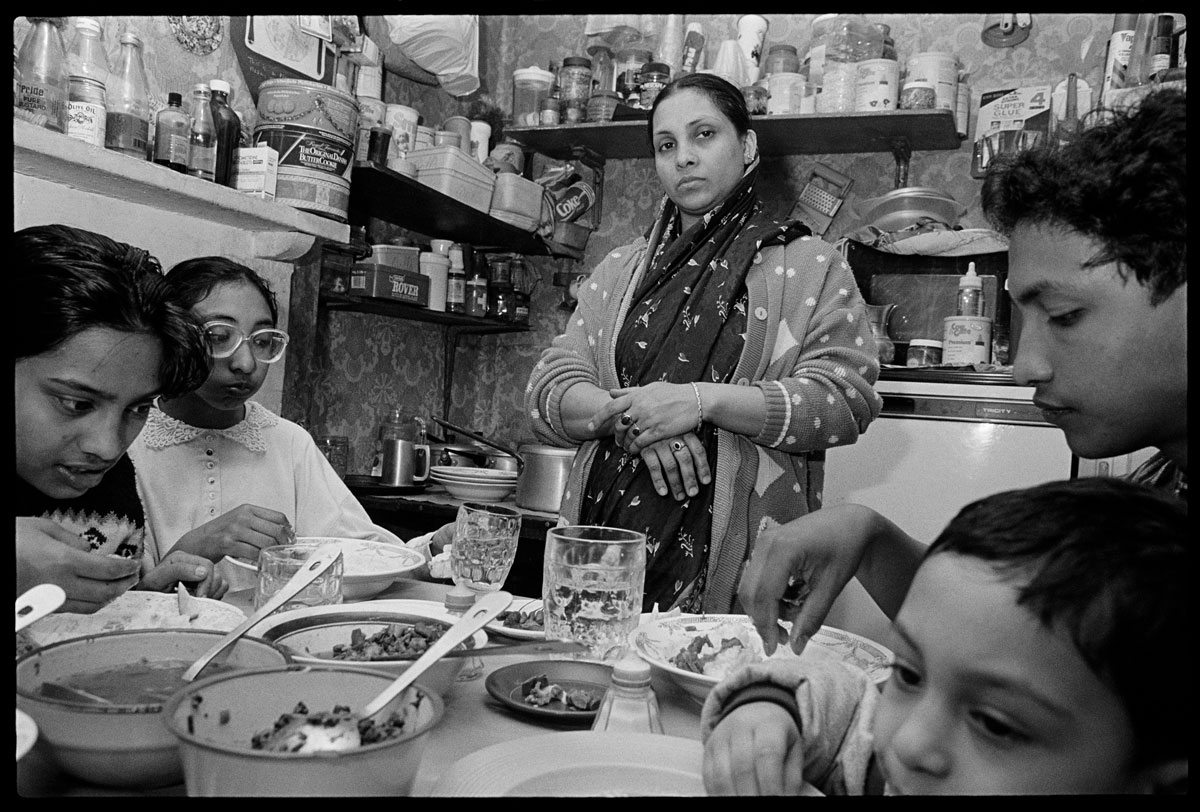
Anthony Lam worked with the Bangladeshi community in East London throughout the 1980s and early 1990s, first as a youth worker and then as a photographer. Primarily interested in exploring ideas of difference and culture, he captured the sensibilities and identities located in both Bangladeshi and British cultures.
Courtesy the artist and Autograph, London.

Bandele ‘Tex’ Ajetunmobi was a self-taught photographer who recorded the daily lives of his friends and acquaintances, particularly on the streets and in the pubs, shops and clubs around Whitechapel, Stepney and Mile End in East London.
Courtesy the artist and Autograph, London.
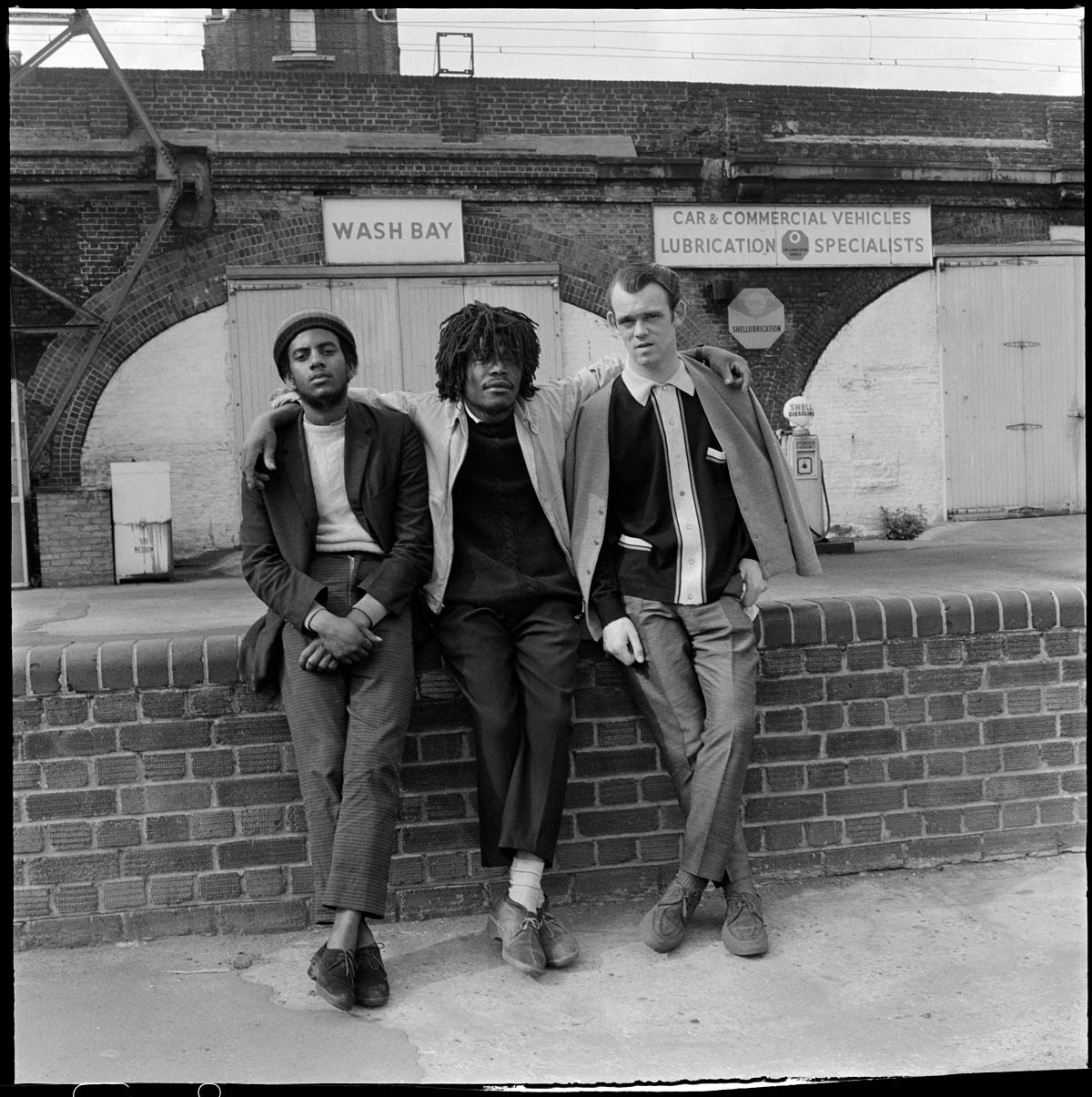
Ajetunmobi continued to document the East End of London for almost half a century, focusing on immigrant communities and the multi-racial nature of the area.
Courtesy the artist and Autograph, London.
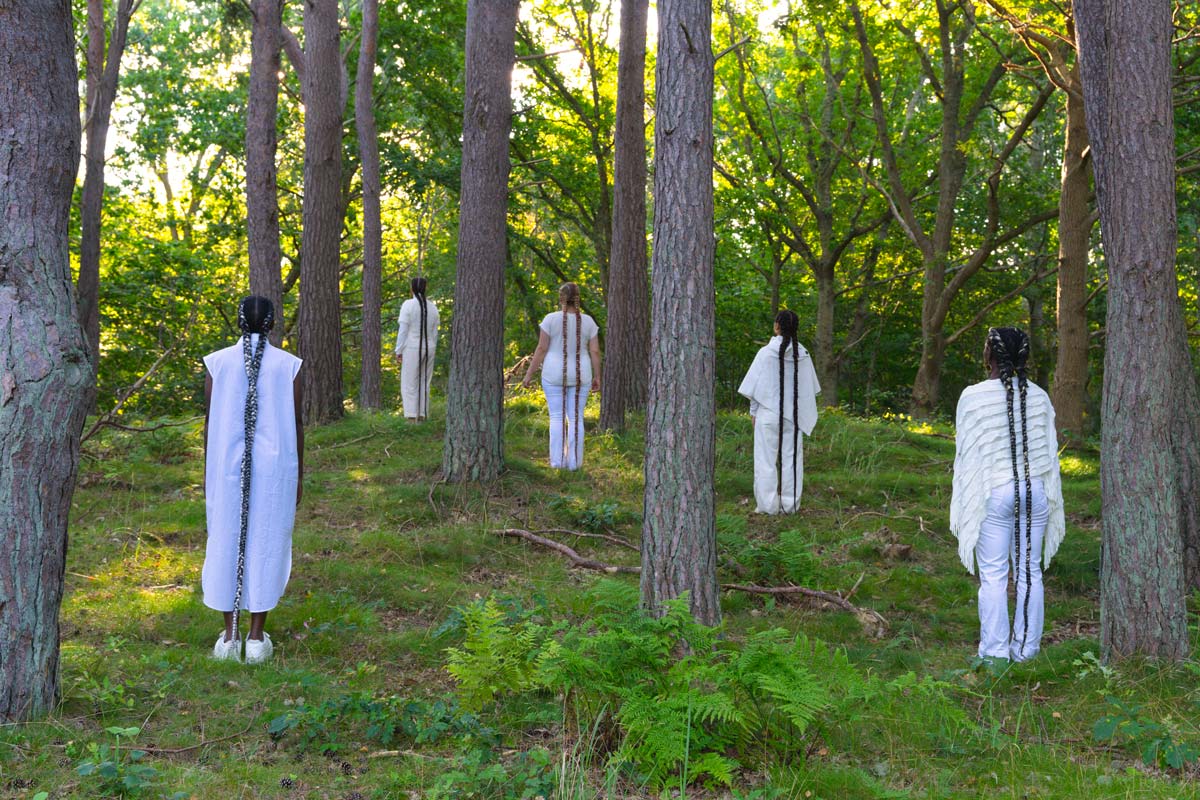
Jeannette Ehlers’ series examines hair as an important marker of Pan-African identity and connectedness. Ehlers sets these images within a Danish forest, where five black female performers are conjoined by a constellation of cornrows as a signifier of strength, sisterhood and spirituality.
© and courtesy the artist. Commissioned by Autograph for Amplify - Stranger in the Village. Afro European Matter (2021), supported by Art Fund.
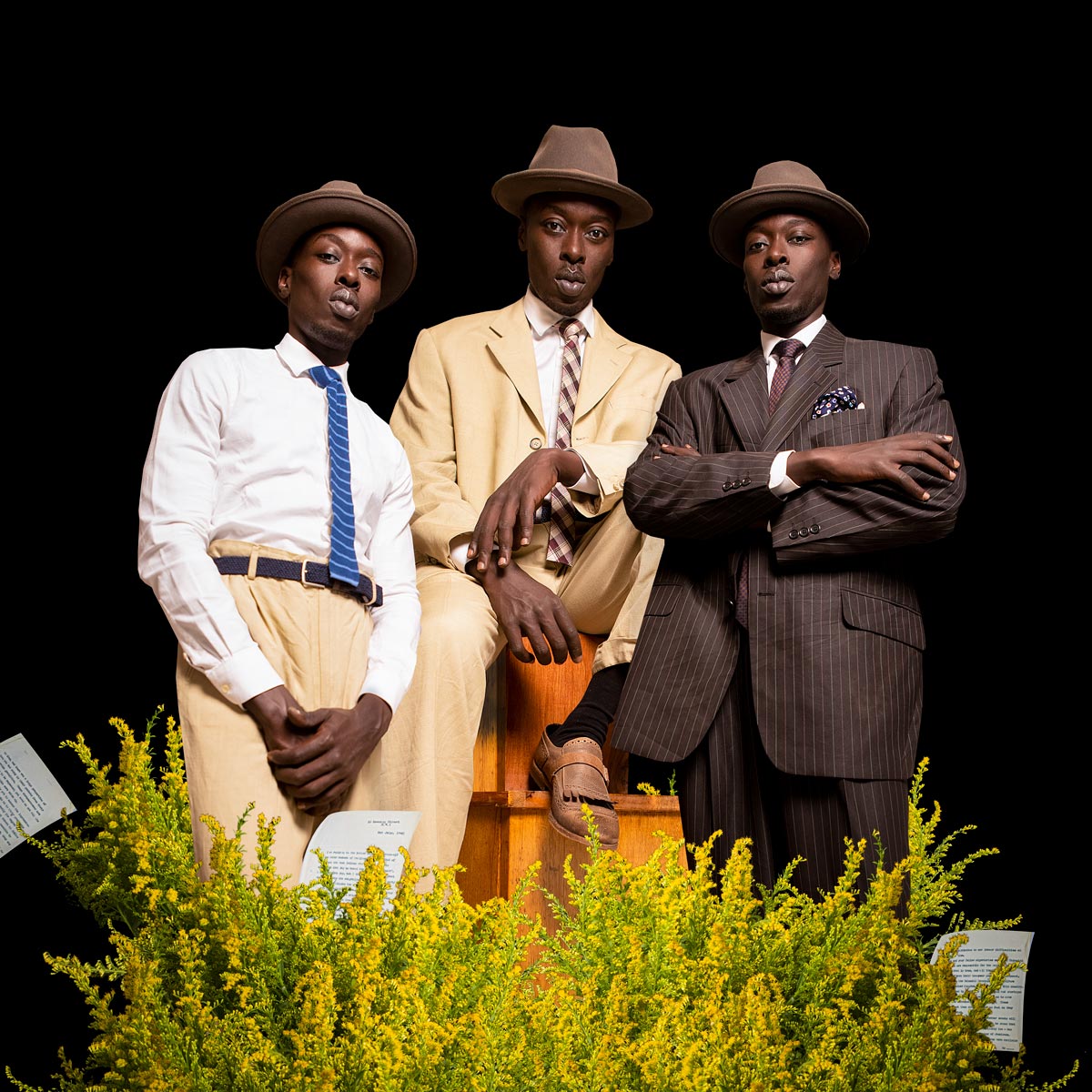
In this work, Omar Victor Diop restages and reinterprets a key moment in Britain’s cultural history of migration; the arrival of the HMT Empire Windrush.
Commissioned by Autograph, London.
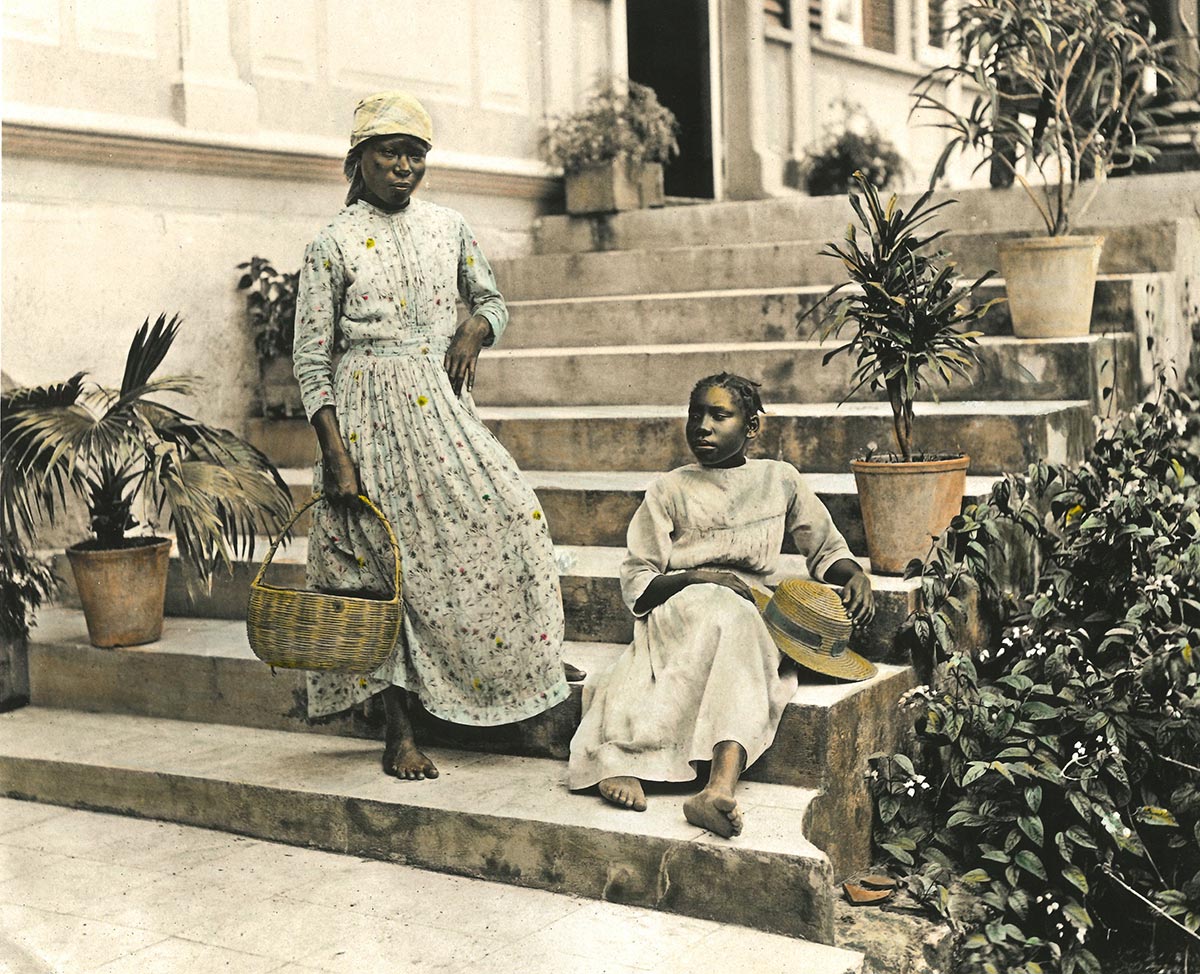
Ingrid Pollard defines her work as “a social practice concerned with representation, history and landscape.” In this work, Pollard has hand-tinted her photograph to reference the postcards of Jamaica produced in the 1890s by a Scottish company called Valentine & Sons, promoting the island as a commercial and tourist paradise.
Commissioned by Autograph, London. Courtesy the artist and Autograph, London.

Colin Jones was a ballet-dancer turned photojournalist who was best known for his series of photographs taken in a hostel known as ‘The Black House’ on Holloway Road in Islington, London in the 1970s. This image, like much of Jones' work, is a record of daily life within a marginalised community.
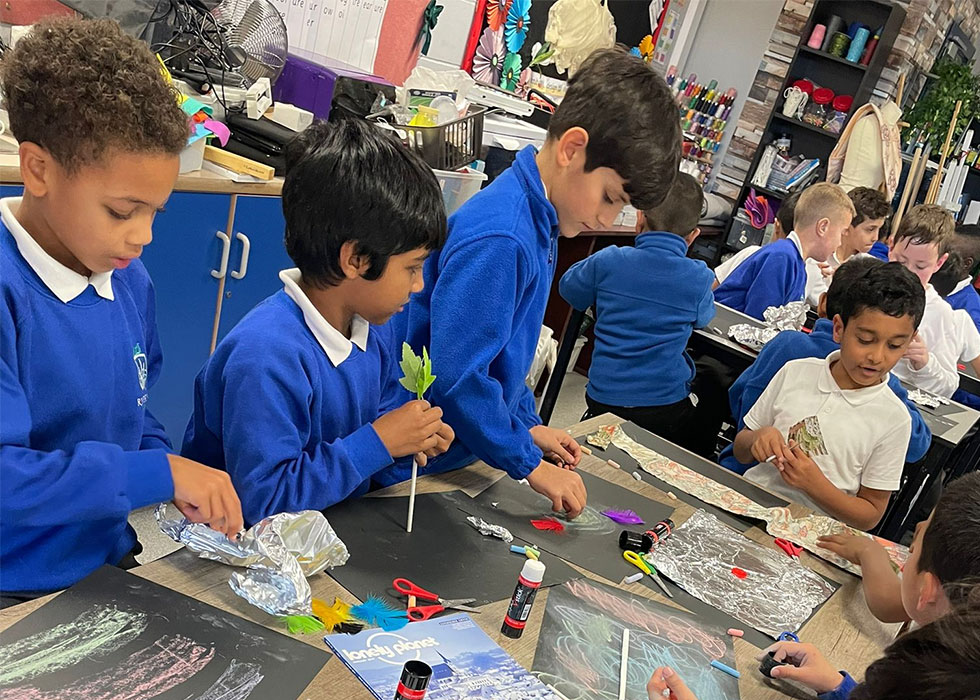
A project to connect young people with diverse visual media and support teachers in making critical sense of images with their students.
Find out moreBanner image: Colin Jones, from the series The Black House [detail], 1973-1976
Autograph is a space to see things differently. Since 1988, we have championed photography that explores issues of race, identity, representation, human rights and social justice, sharing how photographs reflect lived experiences and shape our understanding of ourselves and others.